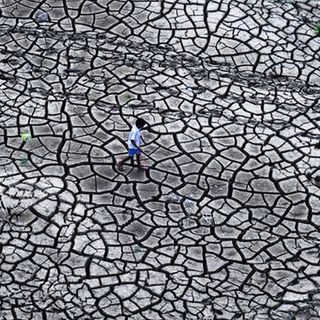India is responsible for the largest amount of sulfur dioxide (SO2) emissions in the world, according to a Greenpeace report that used hotspot data from NASA Ozone Monitoring Instrument (OMI) satellites. India currently makes more than 15% of global SO2 emissions with 4,586 kilotonnes per year, overtaking Russia (3,683 kt/yr) and China 2,578 (kt/yr).
“The burning of fossil fuels such as coal, oil, and gas is the largest source of emissions of SO2 resulting in disastrous air pollution and premature deaths. Clean energy could save billions of dollars in health costs and thousands of lives every year,” said Lauri Myllyvirta, co-author of the report and senior analyst at Greenpeace Nordic, in a statement.
Sulfur dioxide is a colorless gas with a sharp odor that exists in the environment due to both natural and manmade reasons. According to Sciencing, natural sources of sulfur dioxide include volcanic eruptions, hot springs, marshes and other forms of biological decay. Manmade sources of sulfur dioxide include burning fossil fuels like coal, oil and gas, metal extraction from ores, and the usage of fuels with high sulfur content by locomotives and large ships.
Related on The Swaddle:
Could Air Pollution Be Affecting Your Ability to Dream?
A major consequence of increased sulfur dioxide in the atmosphere is acid rain — where sulfur dioxide mixes with rainwater to create sulfuric acid rain. The effects of acid rain include stunting and eventual death of trees, pollution and death of water bodies, and corrosion of marble and limestone. In fact, India’s most famous monument — the Taj Mahal — is eroding, yellowing and coated in soot due to industrialization in Agra and subsequent acid rain.
Sulfur dioxide is also a major contributor to air pollution-related diseases. It can affect the respiratory system, irritate the throat, and aggravate asthma, bronchitis and mucus secretion. According to the American Lung Association, continued exposure to SO2 can also reduce the lungs’ ability to function.
“Air pollution and the climate emergency share the same solution. Governments across the world owe it to citizens to stop investing in fossil fuels and shift to safer, more sustainable sources of energy,” said Sunil Dahiya, campaign specialist, at Greenpeace East Asia.




